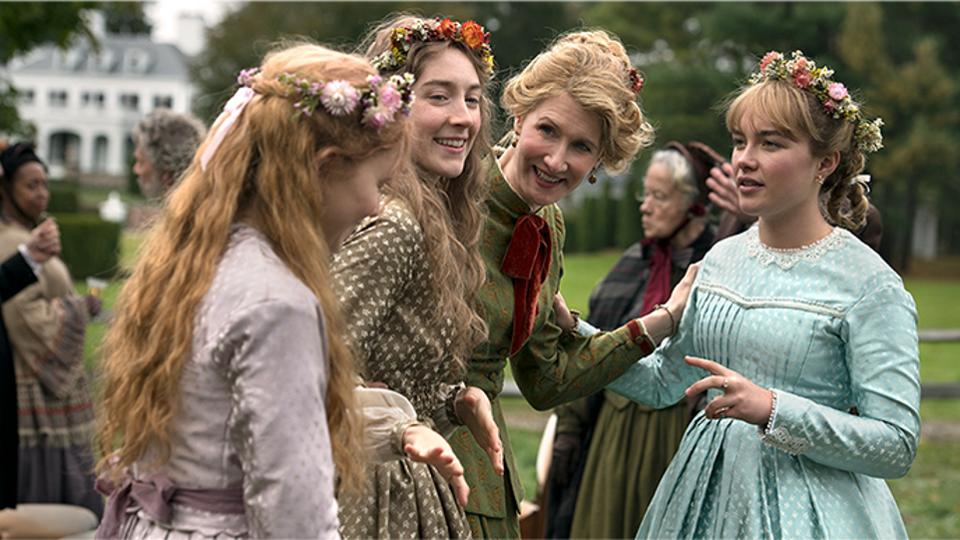
Almost there! We’ve already posted four different pieces on this year’s Oscars, looking at odds and ends, techies, supporting actors, and leads. Now, we’ll take a quick skim through the screenplay categories, before wrapping up with Best Director and Best Picture later today.
BEST ORIGINAL SCREENPLAY
NOMINEES
Knives Out—Rian Johnson
Marriage Story—Noah Baumbach
1917—Sam Mendes and Krysty Wilson-Cairns
Once Upon a Time in Hollywood—Quentin Tarantino
Parasite—Bong Joon-ho and Han Jin-won
WILL WIN
This appears to be a virtual coin flip between Parasite
and Once
Upon a Time in Hollywood. The latter obviously has the bigger name
attached, though that might hurt it; Tarantino already has two screenplay
Oscars on his shelf, whereas Bong is something of a shiny new toy when it comes
to Academy appreciation. Parasite is
also a little bit twistier, and it won at the Writers Guild (though Hollywood wasn’t eligible there). Plus,
given that I’m hesitant to predict Parasite winning one of the top
prizes (again, more on that later today), this seems to be the logical place
for voters to reward it. They can assure themselves that they’ve paid proper
homage to a foreign film, then go on to pick something else for Best Picture.
That’s how the Oscars work, right?
SHOULD WIN
Holy hell. This is surely one of the strongest fields in the history of this
category. I haven’t yet finalized my top 10 list for 2019 (more on that next week), but it’s likely that four
of the nominees here will crack it. Good job, Academy!
Anyway, this is something of a blue-hair take, but 1917 is far more laudable for its cinematic achievements than its writerly ones; there’s virtue in simplicity, but its bare-bones story is mostly scaffolding for its visual flair. I’d be happy with any of the other four nominees winning here, but I’ll go with Knives Out, which enlivened the whodunit through a combination of intricate plotting and juicy dialogue.
THE MANIFESTO’S BALLOT
Booksmart—Susanna Fogel, Emily Halpern, Sarah Haskins, Katie Silberman
Knives Out—Rian Johnson
Marriage Story—Noah Baumbach
Once Upon a Time in Hollywood—Quentin Tarantino
Parasite—Bong Joon-ho and Han Jin-won
I don’t have the time or energy to research this, but I’m pretty confident that this is the first time where four of my choices in this category have aligned with those of the Academy. It was too much to hope that Booksmart might join them, though its touching and hilarious study of female friendship was surely worthy.
The Manifesto’s winner: Knives Out—Rian Johnson.
BEST ADAPTED SCREENPLAY
NOMINEES
The Irishman—Steven Zaillian
Jojo Rabbit—Taika Waititi
Joker—Todd Phillips and Scott Silver
Little Women—Greta Gerwig
The Two Popes—Anthony McCarten
WILL WIN
Uh oh. I was all set to take Little
Women in this category, but then Jojo
Rabbit went on a serious run, scooping up wins in the past week not
just at the Writers Guild, but at the BAFTAs as well. It’s developed real
momentum, so I don’t see it being denied at this point.
SHOULD WIN
I’m typically hesitant to be forceful in this category; I’m rarely familiar
with the source material of the respective nominees, and it’s tricky to judge
the quality of adaptations—the best of which tend to retain the spirit of their
source while still creating something fresh and new—without first having detailed
knowledge of the works that spawned them. This year, I am not hesitant to be
forceful. Gerwig’s screenplay for Little Women is a wonder, capturing
the essence of Louisa May Alcott’s novel while charging it with sparks of
whimsy and unpredictability. What a beauty.
THE MANIFESTO’S
BALLOT
A Beautiful Day in the Neighborhood—Micah Fitzerman-Blue, Noah Harpster
Little Women—Greta Gerwig
Motherless Brooklyn—Edward Norton
Official Secrets—Gregory Bernstein, Sara Bernstein, Gavin Hood
Transit—Christian Petzold
A Beautiful Day in the Neighborhood is bold for what it isn’t: a biopic, a hagiography, a simplistic salve. Motherless Brooklyn tells a sprawling crime story with admirable clarity. I should probably stop raving about Official Secrets, but it’s kind of amazing how the screenplay assembles dry material and weaves it into a taut and coherent narrative. As for Transit, Petzold’s decision to transplant Anna Seghers’ 1944 novel to an indeterminate time, while still retaining its tenor of jackbooted fascism, is a stroke of genius.
The Manifesto’s winner: Little Women—Greta Gerwig.
Coming later today: Best Director and Best Picture.
Jeremy Beck is the editor-in-chief of MovieManifesto. He watches more movies and television than he probably should.
